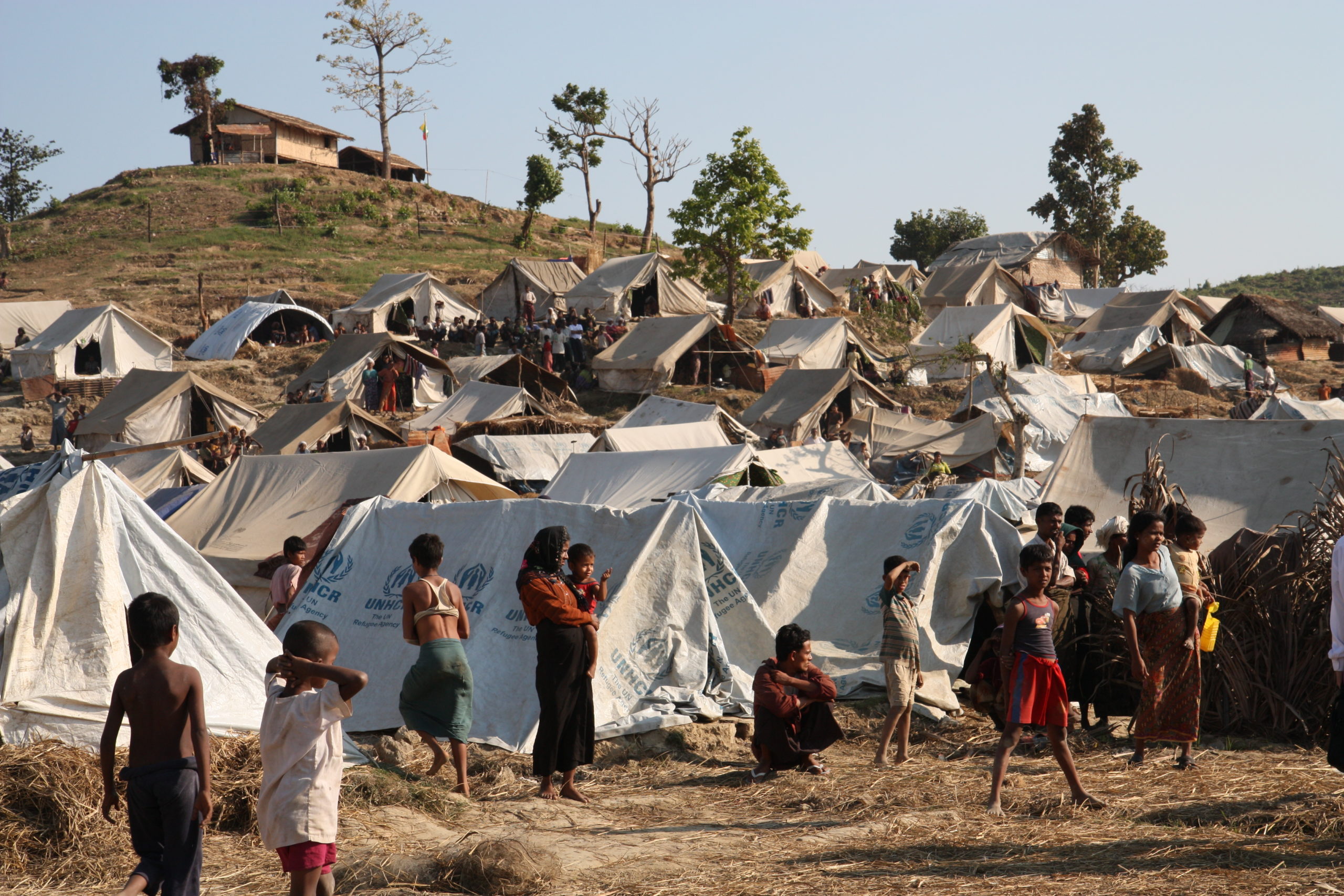During such extraordinary times, it is easy to forget that the problems which were around before the COVID-19 crisis still remain. A huge group of Rohingya refugees are currently stranded at sea having been refused access to Bangladesh or Malaysia, and no help offered internationally. Only now are they slowly being rescued and sent to an island which is far from ideal.
The Rohingya refugees fled Myanmar (formally known as Burma) where they were living in a hostile environment alongside Buddhists. The Rohingya were treated as illegal immigrants in Myanmar, denied their citizenship and having restrictions placed around them.
In August 2017 violence began in Myanmar, at least 1,000 people were killed. Since then over 700,000 Rohingya have fled to Bangladesh because of what a UN top official warned to be a “textbook example” of ethnic cleansing. Investigations began in 2019 in the international criminal court which opened into a case brought forward by the Gambia of suspected genocide.
Although the Rohingya people who have reached Bangladesh since 2017 may be safe from authorities in Myanmar, the conditions in Kutupalong, the world’s largest refugee camp, are extremely overcrowded, with more than one million refugees forced together. Many of them choose to flee to Malaysia by boat instead.
Two boats of around 500 people recently attempted to reach Malaysia but were turned away by the government, who claimed to be trying to prevent further spread of coronavirus within their country.
Rights groups have argued that the governments are using the global health crisis as a way of pushing boats back. Although they are right in trying to contain the virus, this is not a justification for refusing to help others in a crisis of their own where they face certain death if action is not taken.
They were then turned away by Bangladesh, with the Bangladesh foreign minister, Abdul Momen, protesting that “Bangladesh is always asked to take care of the responsibility of other countries.’ Momen is justified in raising concern that Bangladesh is having too much pressure placed on it to look after these refugees. But it is unjustifiable to refuse help to risk the lives of these innocent refugees in order to raise awareness to his country’s internal issues.
However, the Bangladeshi government is not solely responsible for this crisis, other countries should be acting to help. Refugees whose relatives are missing on the boats are pleading with international governments to act before they die at sea.
In the past, during other refugee crises, most international governments have been quick to refuse to take responsibility for the refugees who have no other option other than to rely on the hospitality of countries other than their own. These refugees are the responsibility of everyone.
On Sunday news came that a smaller boat of 43 people had landed on the southern coast of Bangladesh and had subsequently been sent to quarantine on an uninhabited island, Bhasan Char. This plan has been criticised by human rights groups as the island is prone to flooding and lacks basic necessities. The deputy director of Human Rights Watch’s Asia division, Phil Robertson called Bhasan Char a ‘de facto detention island’ which ‘is not a rights respecting solution’.
On Thursday, Bangladesh authorities confirmed that 280 more Rohingya refugees were rescued by the Bangladesh navy from the Bay of Bengal and took them to Bhasan Char. They are now on alert for other boats still at sea.
There are still refugees stranded at sea in dire need of rescuing and the ones who have already been rescued need a more permanent solution.
Bangladesh is doing the bare minimum to help these refugees, ‘rescuing’ them instead of helping them before they needed rescuing, then leaving them to fend for themselves on a temporary island. Many refugees died at sea and suffered abuse from traffickers, Bangladesh could have prevented this.
The UN High Commissioner for Human Rights, Michelle Bachelet, described the situation as “a human tragedy of terrible proportions”. There is no justification to abandon these refugees to temporary solutions after weeks of being ignored while at sea. But this burden is not solely that of Bangladesh.
Ana Hill Lopez-Menchero
Image: Wikipedia.

